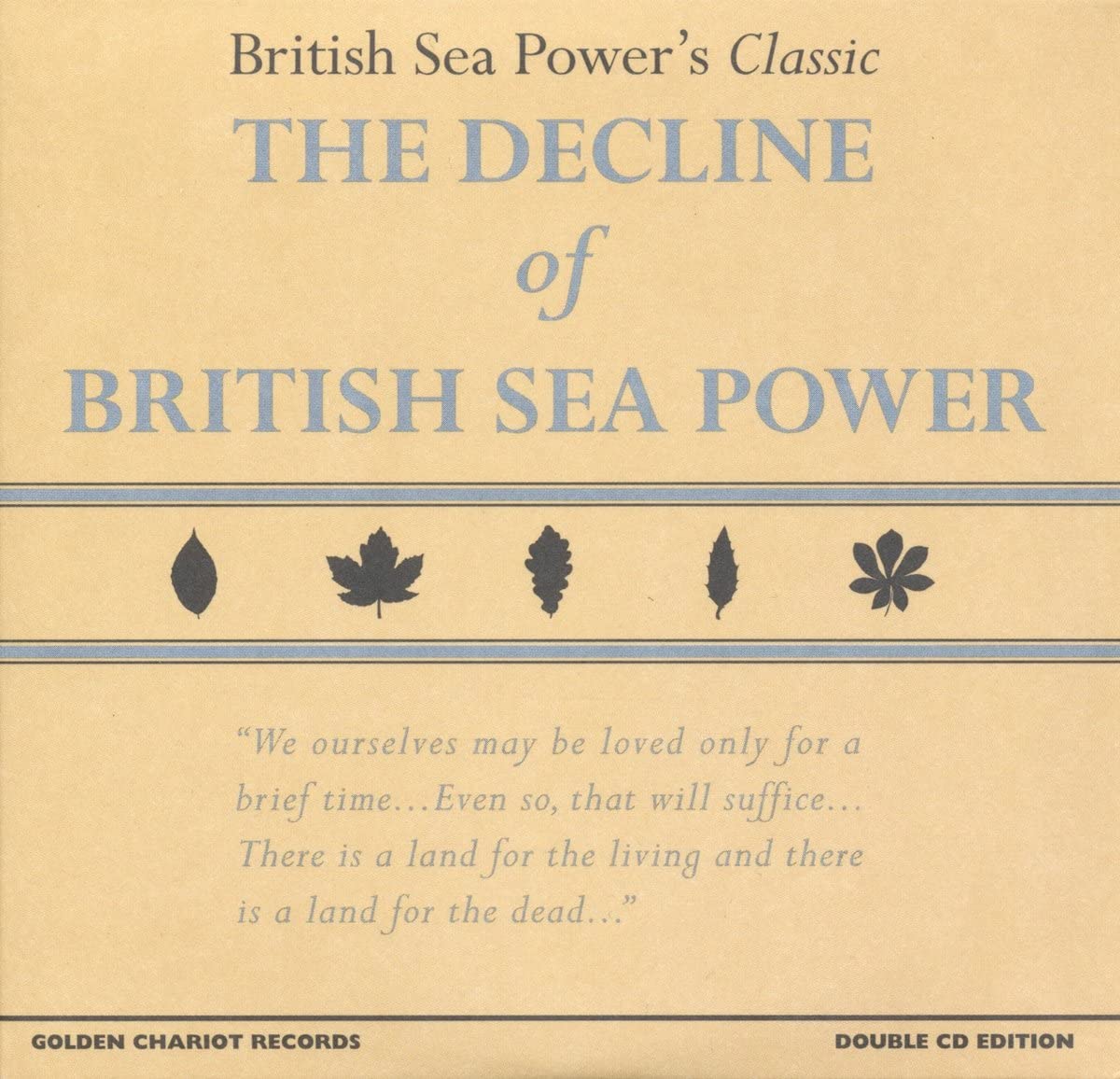
British Sea Power
The Decline of British Sea Power
(Rough Trade/Sanctuary; 2003)
By Todd Aman | 26 January 2004
Peak inside Rolling Stone and you’ll undoubtedly read about some hip new genre (disco-folk or grunge-jazz-house) about to break into the mainstream. With all these new genres about, have you ever wondered, "Who invents genres?" Only once or twice per decade, musicians create new genres by actually deviating from existing ideas and exploring new sounds. Yet, new genres pop up seemingly every day! From whence came these other genres? Answer: music critics. Critics enjoy categorizing music more than they enjoy eating-ice-cream-while-having-sex-while-winning-an-Oscar-while-having-sex-again. As a result, most of our genre classifications are fairly meaningless.
Take post-punk, for instance. which literally means "after-punk." Figuratively, post-punk means "punk and something else," which means practically anything you want. The genre includes spazcore geniuses like Brainiac, punk traditionalists like Fugazi, and now, apparently, British Sea Power.
British Sea Power clearly display punk influences, especially toward the beginning of Decline of British Sea Power. Tracks 2 and 3, "Apologies to the Insect Life" and "Favours in the Beetroot Fields," offer churning guitars, chanted vocals, dirty bass-work, and driving percussion. On the other hand, the album mellows significantly toward the end. On "The Lonely" and "A Wooden Horse," British Sea Power sound like those legendary bedroom tear-jerkers, Echo and the Bunnymen. Between these two poles, songs like "Carrion" and "Remember Me" ambiguously straddle the line between pop and punk (not pop-punk, however, which straddles the line between crap and shit). All told, the "post-punk" appellation fits BSP only occasionally.
Time to discuss technicalities (yay)! First, British Sea Power explore many different songwriting strategies. "Carrion" and "A Wooden Horse" follow the classic pop-rock formula (verse chorus verse chorus bridge chorus etc). On the other hand, "Fear of Drowning" and the epic "Lately" rely upon swells and fades. These different strategies work well for British Sea Power; they write compelling music, with or without structure. Second, British Sea Power clearly can play their instruments (rare, these days). Listening to the guitar and percussion work on "Remember Me," my first reaction was "holy shit," quickly followed by "this is totally badass." Unfortunately, the album’s production often covers BSP’s best work with abrasive static and noise. For example, we know these guys write solid baselines (check out the opening of "Apologies to the Insect Life"), but the base rarely emerges from beneath the overbearing guitar noise. On the mellower tracks, like "A Wooden Horse" and "Lately," the production lightens up. Without all that garbage clouding the band’s sound, we finally detect BSP’s impressive attention to detail.
Can we neatly file away British Sea Power into our "post-punk" cabinet? Definitely not. Two parts punk, three parts pop, and four parts rock, Decline of British Sea Power currently defies categorization. Definitely worth your time and money.





